Beekeeping is receiving a recent boost in popularity as many people seek to grow and produce their own food at home. As a vegetable grower, the next logical progression is to encourage pollinators in your garden, and what a better way than to keep your own bees! Many people interested in keeping bees don’t know where to start, so we have put together this beekeeping for beginners guide to get you started on your beekeeping journey.
Beekeeping requires a time commitment, equipment, and knowledge to get started. Time commitment is discipline, equipment costs money, but knowledge only comes with experience. Start with good equipment, know your local regulations around beekeeping and learn from other beekeepers.
Beekeeping is like farming with livestock; you need knowledge about your livestock, their needs, breeding cycles, and requirements. As with any other farming, you will need some equipment to make your beekeeping easier and safer for all concerned. We have gathered together the basic information and some tips to get your beekeeping started.

How To Get Started Beekeeping
There has been much publicity recently in global media about the plight of bees worldwide and what their decreasing numbers mean for the survival of mankind. Essentially, the reduction in bee colonies worldwide can have a drastic impact on our own food production.
Out of the 100 most important worldwide food crops that provide 90% of the world’s food supply, more than 70 of the plant species rely on pollination by bees (attract more bees by planting a few of these perennials bees love).
Encouraging more people to start keeping bees helps protect the world bee populations, and when the bee colonies split and swarm off, it boosts the population of bees in the wild.
Before you commit to getting started as a beekeeper, there is some important information you need to know. Beekeeping requires dedication and time, so don’t take on the added responsibility unless you have the time and resources. Here’s a quick introduction to beekeeping.
How Much Time Does Beekeeping Take?
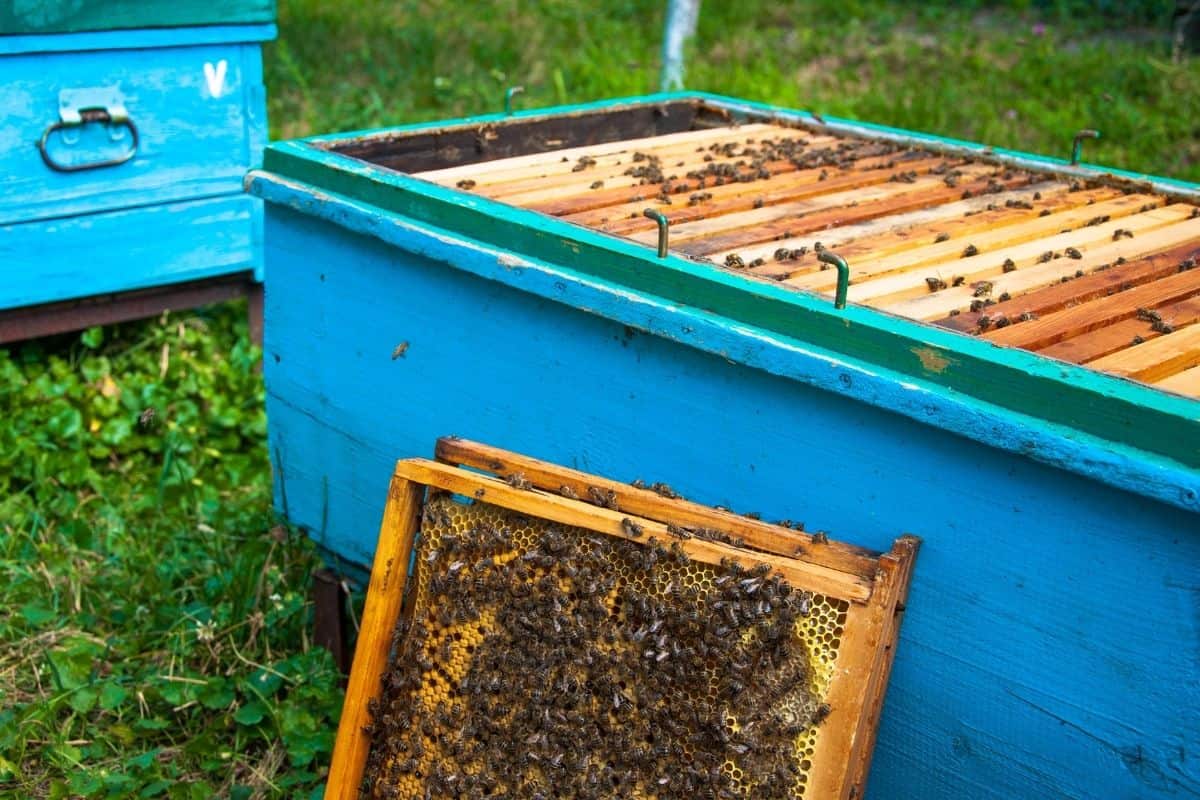
If you start keeping bees, you are responsible for their care and wellbeing, just like a pet or farming other livestock. The bees need care, the hives need maintenance, and you will need time to harvest the delicious honey!
So how much time does beekeeping take? Beekeeping is seasonal, meaning you will have a busy season starting in the early springtime and going all the way through the summer. The quiet season in beekeeping is in the wintertime when the bees are less active.
In the early springtime, you will be busy preparing the hives for the coming blossoming of springtime, and you will want your bees to be ready for the bounty that it brings.
Spring maintenance involves checking how each colony survived the winter, getting the hive ready for the influx of pollen and nectar, and giving the bees a place to store it. The amount of work this involves depends on how many hives you have. This will take about 2 hours per hive.
Spring and summer will be a busy time harvesting honey, which could be as often as every 2 to 3-weeks, depending on how much resources the bees have in the area. Harvesting and spinning out the honey can take time and could keep you busy for 2 or 3 days on each harvest cycle, once again depending on the number of hives.
Tip: You get out what you put in. Beekeeping will require a minimum of 30-hours per year, but the more you put into your beekeeping, the more you will get out of it.
Towards the end of summer, you will need to do maintenance again to prepare the bees for winter. Depending on your local climate conditions, you may need to feed the bees during the wintertime to keep the colony strong in preparation for the coming spring.
Winter maintenance will take about 2-hours per hive until you have your processes dialed in. Feeding the bees throughout winter may have a time commitment of about 30-minutes per hive per week.
As a beginner, you will need to factor in time to learn about the bees and how to take care of them, which is quite a steep curve in your first year of beekeeping!
Beekeeping Rules And Regulations
Before you jump in and get your first hive, you need to consider some legal implications for beekeeping.
Many local authorities have regulations regarding the keeping of bees in certain areas, especially high population density areas. The regulations vary from municipality to municipality, so the best strategy is to consult with your local authorities and find out the rules for beekeeping in your area.
In some places, beekeeping may not be allowed at all, but it may be permitted with certain prerequisites in others. Some regulations may require restricted access to your apiary site, restrictions about locating the hives close to property boundaries, and other similar restrictions.
Some insurance companies offer liability insurance for beekeepers to protect you should your bees cause injury or death.
Before you commit to keeping bees, you need to investigate the rules and regulations around beekeeping in your area so that you can pursue the hobby safely and within the confines of the law.
Tip: Beekeeping can be dangerous. Always keep bees safely and within the bounds of your local rules and by-laws.
Equipment Needed For Beekeeping
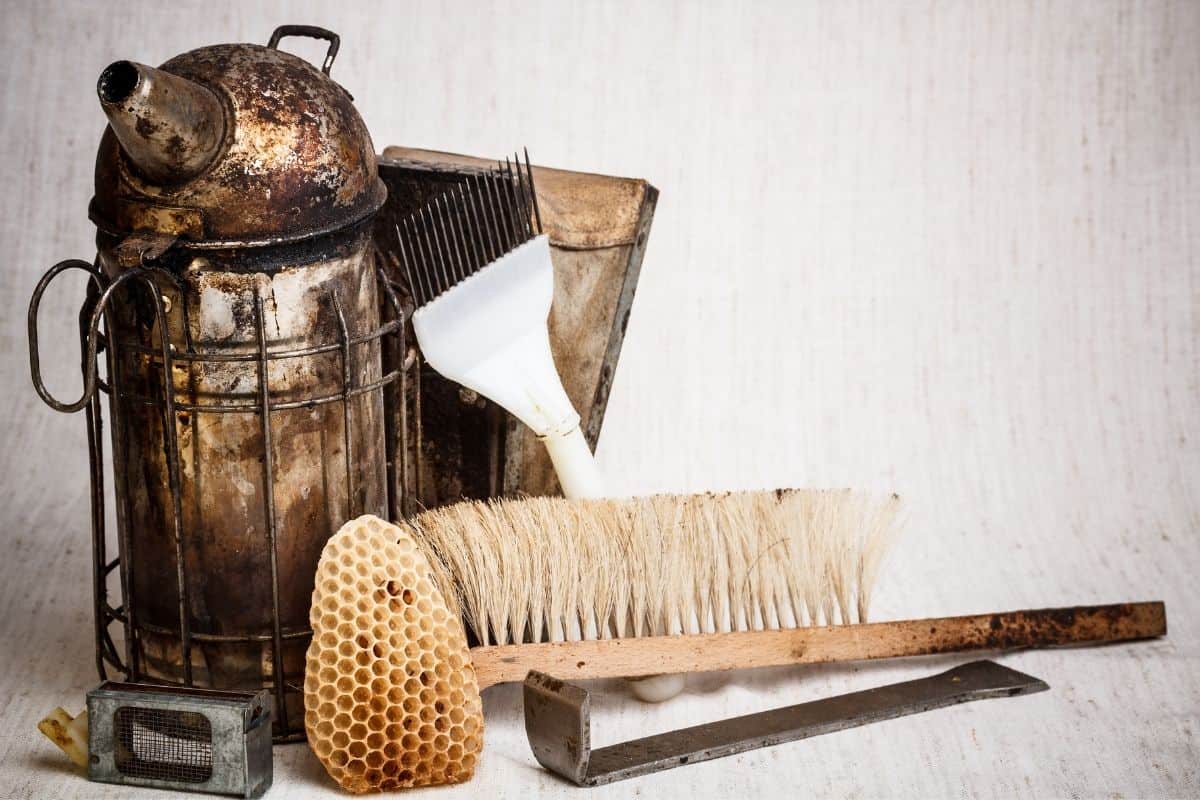
Beekeeping is an equipment-dependent hobby, but your highest expense will be when you first start out. If you buy quality gear, your beekeeping equipment will last decades, provided that you look after your gear and keep it well-maintained.
Here’s a list of the basic gear you will need to get started, to make sure you don’t forget anything.
- Bee Suit – part of the necessary PPE for a beekeeper (should you wear a full bee suit?)
- Boots – rubber or leather boots are required to prevent the bee stings from getting through.
- Gloves – Your hands will be in the hive with the bees and need protection.
- Hive Tool – an indispensable tool for working inside the hive removing frames
- Smoker – Smoker with fuel to keep the bees calm
- Queen catcher – butterfly clips for securing the queen
- Queen marking pens
- Bee brush – to gently brush bees off the frames
- Uncapping tool – to break the caps and extract for honey extraction.
- Honey Harvesting Kit – strainers and gear to filter the harvested honey
There are many other tools and gadgets you can acquire that will be useful in beekeeping, but this s the basic list you will need to get started. Quality on the bee suit, boots, and gloves cannot be emphasized enough since this is your basic protection from being stung while working with the bees.
The smoker is to puff smoke over the bees and into the hive o calm them down if they start getting stressed when working on the hive. You don’t have to use commercial fuel in the smoker but can substitute it with horse manure or even unprinted, glue-free cardboard.
Tip: Don’t go gadget-crazy on your new beekeeping hobby. Some items are gimmicks rather than useful. Buy as you go along and discover what other items will benefit your operation.
A honey extractor is a useful piece of equipment to have as you get more into the hobby, but you don’t need this expensive equipment to start out. A manually operated honey extractor will cost between $280 and $300.
However, you will only benefit from an extractor once your apiary has grown to between 5 and 10 hives. Until that point, you can extract the honey by cutting the comb from the frames and letting the honey drain out or squeeze the honey from the comb.
This process requires some extra work, but it is not so much that an extractor is warranted as a beginner beekeeper.
What BeeHives Do You Need?
Beehives come in various styles and formats, but one of the easiest hives to work with is the Langstroth hives that have been designed specifically for commercial beekeeping.
The Langstroth hives are designed for easy access with minimal disturbance of the bees and for modular expansion of the hive.
A full Langstroth hive usually includes the brood chamber, a super, 10 brood frames, 10 superframes, and a lid for the hive. You will also need to install a queen excluder to keep the queen bee out of the honey storage areas in the super chambers.
The brood chamber is where the queen lives, lays eggs and produces new workers. The queen will be prevented from entering the super chamber by the queen excluder. The super chamber is where the worker bees will store excess honey. The Langstroth hive system is modular, so you can add a second or even a third super chamber on a hive when the nectar flow is heavy and if you have a strong colony of bees.
Langstroth hives are the best option for a beginner beekeeper because it takes up less space than other hives, it is modular for easy expansion, and the hive is easy to relocate when needed. For these reasons, the Langstroth hive is the best recommendation for beginner beekeepers.
Where Do You Get The Bees For Starting Beekeeping?
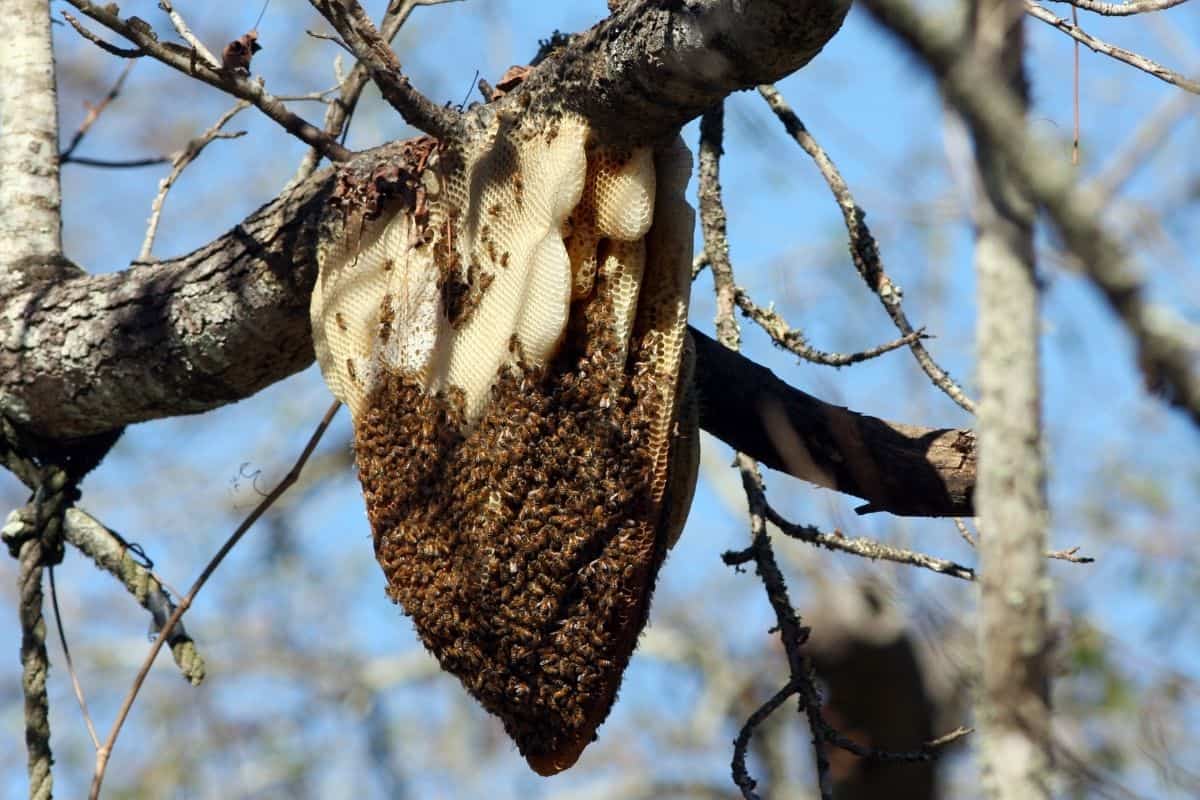
So now you have all the equipment needed to start beekeeping, but where do you get the bees from to fill your brand-new hive?
There are three main ways you can get bees to get started as a beekeeper.
1. You can use a bee attractant to attract a wild colony of bees to take up residence in your new hive. This can be a hit-and-miss operation and may take some time to get a colony of bees to take up residence in the hive.
The timing for putting out the hive and the attractant is important and should be in the early springtime when many new bee colonies are looking for new homes.
2. Another method is to buy a package of bees, consisting of a queen, workers, and a feeder for the bees during transit. The supplier of the packaged bees will give you instructions about how to rehome the bees into your beehive.
The best way to source a package of bees is to connect with local beekeeping associations, bee clubs, or even other local beekeepers in your area.
3. This brings us to the third way to obtain a bee colony. You can purchase a complete hive with bees and all from a local beekeeper, who will help you relocate the hive to your property and give you advice and tips on how to take care of your bees.
With this method, you start with a strong colony that could give you a harvest in your first year of beekeeping.
Tip: Buy local bees. Buying a local colony is the best way to get bees that are already acclimatized to your region. Just be cautious about introducing pests and diseases to your apiary site. Buy from a reputable supplier.
Join A Beekeeping Club Or Association
One of the best strategies to fast-track your beekeeping knowledge and experience is to join a local beekeeping club or association.
Within these groups, you will find beekeepers just starting out, those who have been keeping bees for 30-years, and some people in-between. This is a vast wealth of knowledge and experience that you can tap into for tips, tricks, and assistance in your beekeeping.
Most old-timers are more than willing to share their knowledge and experience with the community and even offer you some onsite assistance with your bees. You could also partner together with some of the other new beekeepers and figure out the process together.
Tip: Remember that sharing knowledge is a two-way street. If you expect others to share their knowledge with you, you should be willing to share your knowledge with others who are just starting out.
Most associations have training sessions and lectures that will teach you the best seasons and timings to perform certain maintenance tasks on your hives and teach about your colonies’ disease and pest control.
You can learn a lot online, but local knowledge of conditions, problems, and solutions cannot be substituted, and the best way to get this is from other local beekeepers.
If there is not a bee club or association in your region, start one and get local beekeepers to join and share knowledge. It can be on an informal basis in the beginning and grow into a formal association later, but you will gain invaluable knowledge along the way!
Books About Beekeeping For Beginners
If you’re like me, you’ll probably want a book in your hand to check things out before you start. Here are a few great books for beginner beekeepers.
The Practical Book of Beekeeping: A Complete How-To Manual on the Satisfying Art of Keeping Bees and Their Day to Day Care Backyard Beekeeping: Everything You Need to Know to Start Your First Hive
Backyard Beekeeping: Everything You Need to Know to Start Your First Hive Beekeeping for Beginners: How To Raise Your First Bee Colonies
Beekeeping for Beginners: How To Raise Your First Bee Colonies Beekeeping: The Essential Beekeeping Guide: A Step-By-Step Guide to Beekeeping for Beginners and Advanced
Beekeeping: The Essential Beekeeping Guide: A Step-By-Step Guide to Beekeeping for Beginners and Advanced
Conclusion
Beekeeping is an exhilarating hobby that not only benefits your local garden and those of your neighborhood but contributes to promoting the preservation of bee colonies worldwide.
You will be taking on a new set of responsibilities as a beekeeper, not only for your bees but also to work safely with your bees in your neighborhood.
Make sure you are up to the commitment before you start, but if you decide to go ahead, you are in for a rewarding and fascinating journey into the world of beekeeping!
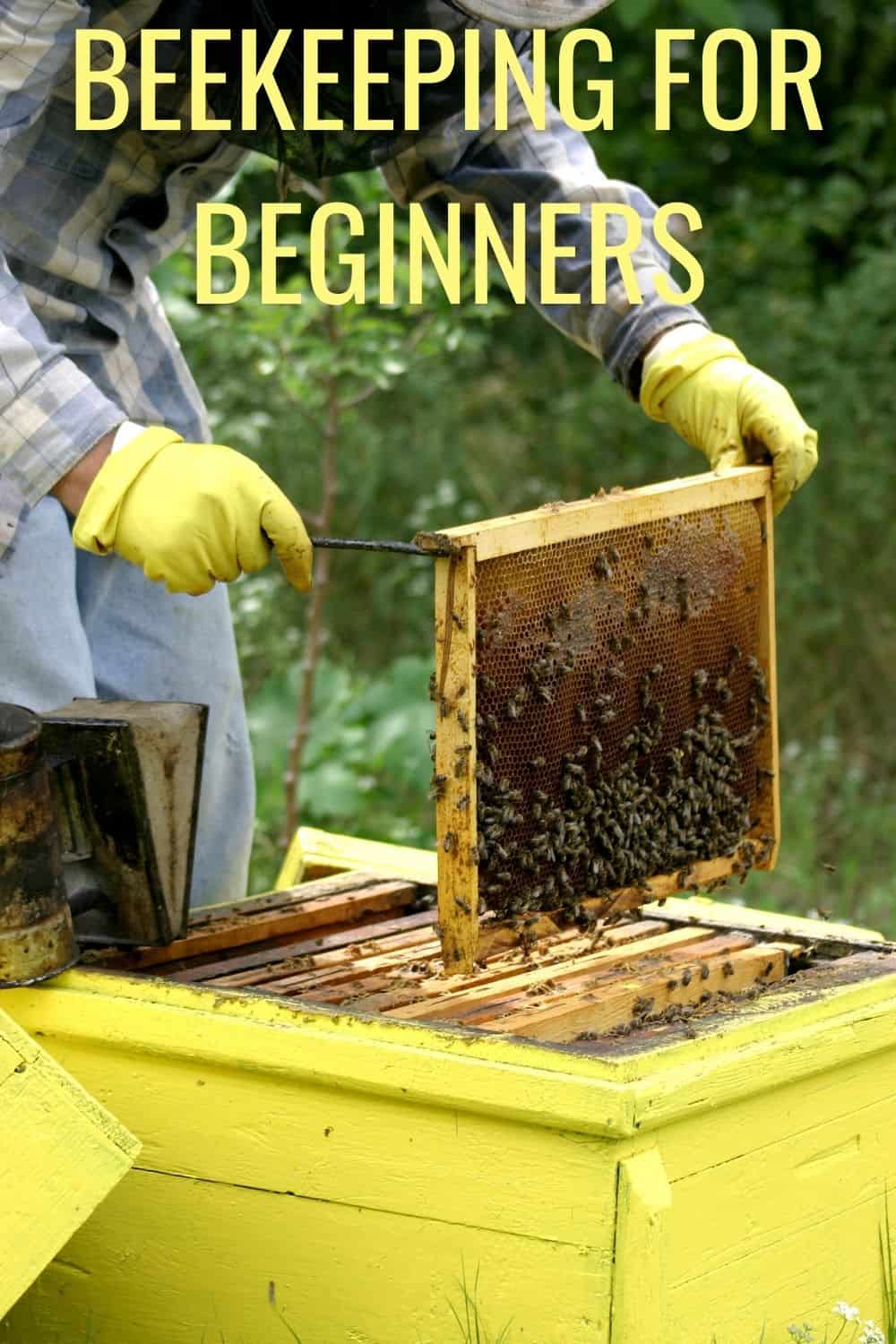

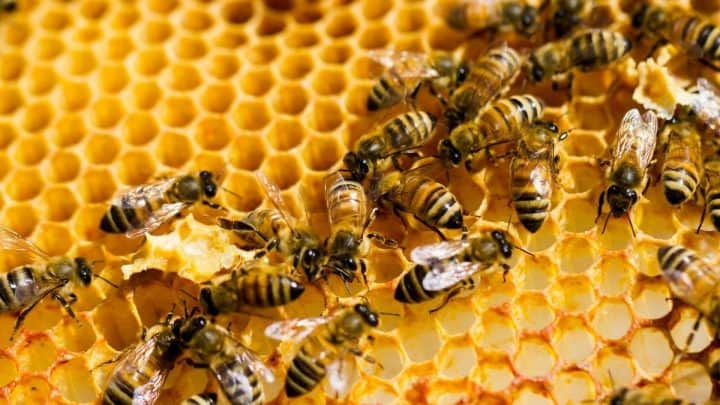



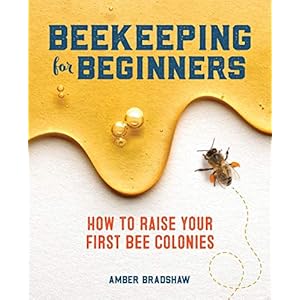


Can A Bee Sting Through A Bee Suit? 6 Precautions To Take When Working With Bees
Thursday 10th of November 2022
[…] let the thought of being stung by a bee deter you from embarking on this rewarding hobby. There is a selection of fabulous bee suits available that offer excellent protection from stings, […]
Do You Need A Full Bee Suit?
Thursday 10th of November 2022
[…] find using a full bee suit unnecessary; however, you may wish to invest in one if you are new to working with bees. Bees react badly to the carbon monoxide expelled in human breath, and this could result in a sting […]
Quick Introduction To Beekeeping
Wednesday 3rd of August 2022
[…] Beekeeping for Beginners – Everything You Need to Know to Start Raising Bees […]
9 Beekeeping Books For Beginners - Learn About Caring For Bees
Wednesday 27th of October 2021
[…] of the bees, they may leave your hive in search of more suitable locations. So, if you want to start beekeeping, you need to educate yourself as much as you can on the matter to make sure you, and the bees, are […]
How To Calm Bees Before Inspecting The Hive
Sunday 17th of October 2021
[…] Lean more about beekeeping here. […]